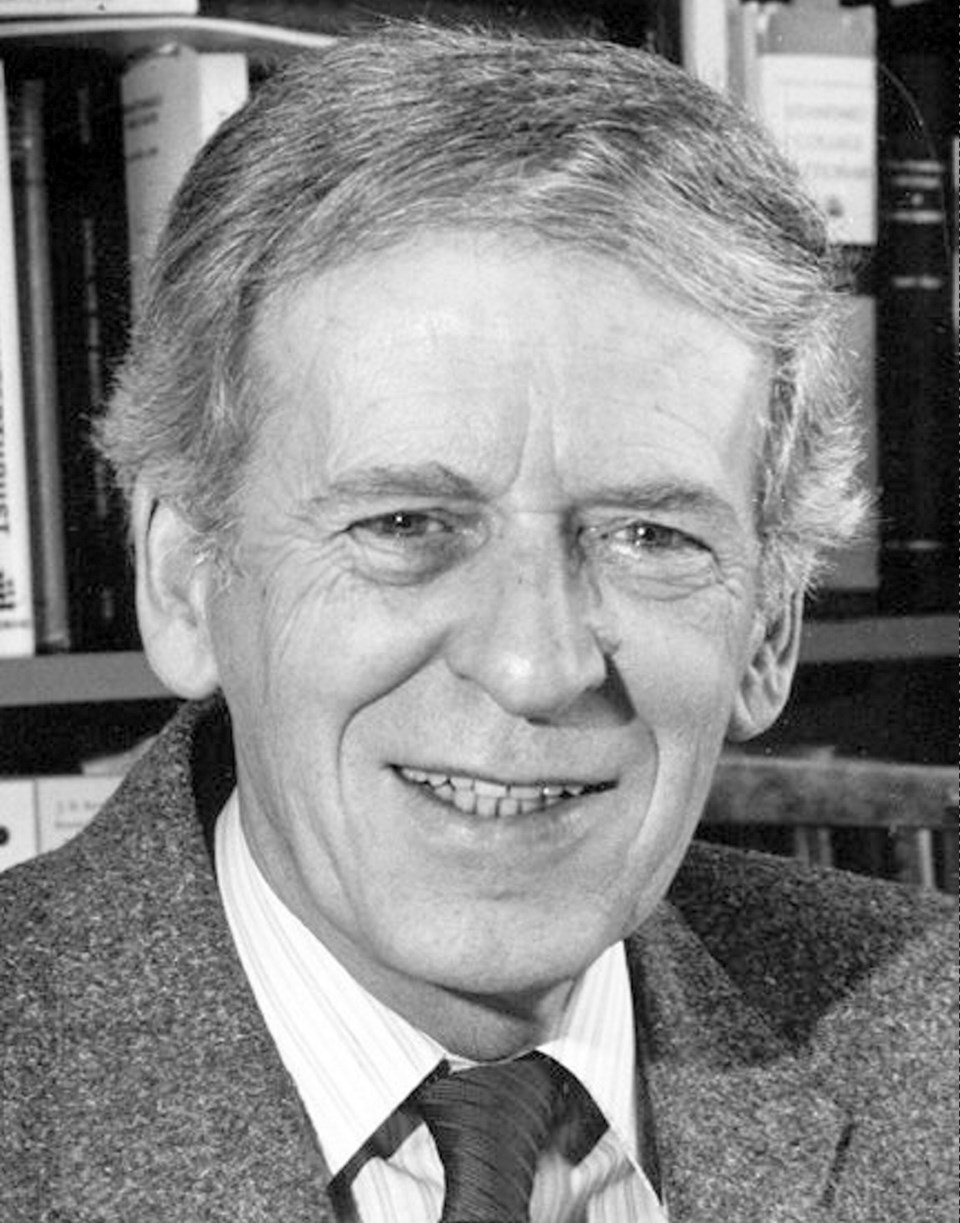One of Canada’s leading chroniclers of military history, who championed a way for other veterans to tell their stories to younger generations, died Tuesday in Saanich at the age of 91.
A veteran of five European theatres of war, Reginald Roy spent 30 years as a history professor at the University of Victoria and helped to write the official Canadian history of the Second World War.
He authored 12 books and was “the pioneer at UVic for veterans’ oral history,” said his successor, David Zimmerman. The project ensured that veterans’ memories — recorded in their own words — would long outlive them.
Roy originated the teaching of courses in military history at UVic. As a teacher and a veteran, he was able to bring the reality of wartime into the classroom.
“Taking one of his classes was like sitting in on the Who’s Who of Canadian military history,” Zimmerman said.
In 2005, the Reg Roy Military History Collection was opened in UVic’s McPherson Library.
Roy is survived by Ardith, his wife of 67 years, and his daughter, Franklyn. He was born in New Glasgow, N.S., on Dec. 11, 1922, the son of a First World War veteran and his British war bride.
He was too young to serve when he enlisted in the Canadian Army in 1939, and was known as “Boy Roy.” He served in Great Britain, Italy, France, Belgium, Holland and Germany with the Cape Breton Highlanders, and was commissioned as an officer in 1943.
A high school dropout, Roy eventually earned a doctorate in history from the University of Washington.
The family moved to Victoria in 1954. From 1954 to 1958, Roy served with the Canadian Scottish Regiment (Princess Mary’s) as an archivist at the Public Archives of B.C. He commanded the UVic detachment of the Canadian Officers Training Corp for 10 years, then served with the Supplementary Reserve as a major.
He joined Victoria College, UVic’s predecessor, in 1959 and retired, reluctantly, in 1988.
“It was really tough for him,” colleague Eric Sager said of Roy’s retirement. “But he just kept doing his work, his research and his publications. There was no slowing the guy down.”
Sager recalled Roy as diplomatic and generous. He held his views strongly, but communicated them gently and was known for his welcoming ways.
“I remember when I first moved to Victoria — and I think Reg did this of all his younger colleagues at the university — he took me to lunch at the Union Club. That’s classic Reg Roy.”
Roy was “a soldier at heart,” said Michael Heppel, a retired brigadier general from the Canadian Scottish Regiment.
He recalled the “absolutely first-rate” history Roy wrote of the Canadian Scottish titled Ready for the Fray: The History of the Canadian Scottish Regiment (Princess Mary’s) 1920-1955. His last book, D-Day!: The Canadians and the Normandy Landings, was published in 2001.
Roy’s daughter Franklyn remembers him as a humble and witty man.
“He loved to watch period pieces like war movies or Masterpiece Theatre and critique the accuracy that was being portrayed,” she said in an email.
In 2006, she accompanied him to France, where they travelled through First World War territory. She was thrilled to see one of her father’s books at the Vimy Ridge visitor centre. “I was just jumping up and down.”
Roy was a member of the Canadian Historical Association, the International Institute for Strategic Studies, the Company of Military Historians, the United States Strategic Institute and the Canadian Association for the Study of Intelligence and Security.
He received one of only five professorships in military history from the Department of National Defence and was a Fellow of the Royal Historical Society.



